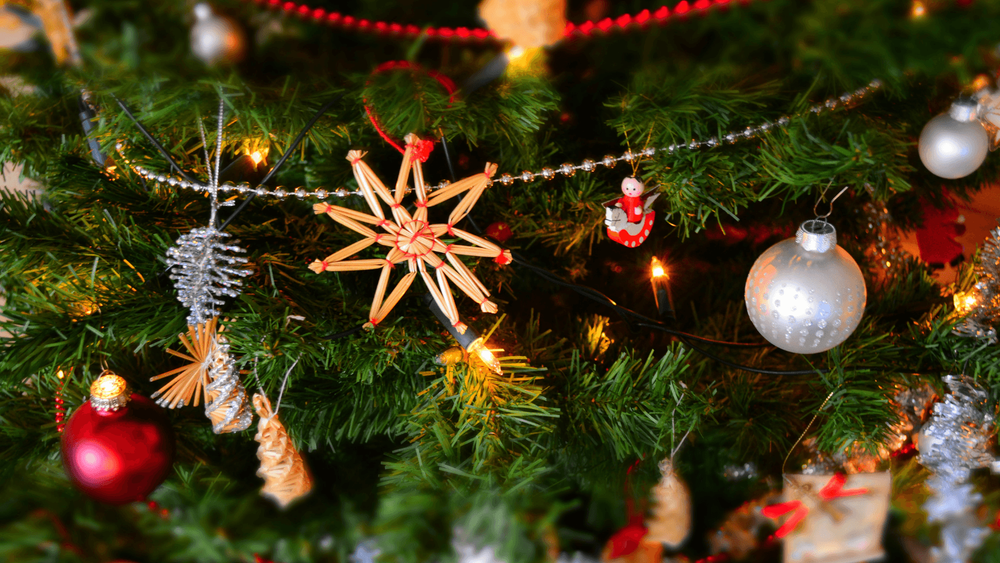Dreaming of a Green Christmas? Here's how to celebrate sustainably
As Christmas approaches, the anticipation of fun festivities can take precedence over the reality of the environmental impact of the season.
However, it's crucial to consider climate impact during this time of year. According to GWP Group, the Christmas period sees a 30% increase in produced and discarded waste in the UK, particularly in food waste, compared to the rest of the year.
There must be a radical shift in our consumer habits and how we manage waste, plastic, food, wrapping gifts, and international shipping.
Let's find eco-friendly ways to keep the Christmas spirit alive!
To tree or not to tree?
There is a debate on whether a real or artificial Christmas tree is best for the environment - it does depend on which tree, whether you’ll reuse it and how it will be disposed of.
According to The Carbon Trust, “An artificial tree used over multiple years (7-20 times depending on the weight and different materials in the tree) is better for the environment than buying a new, commercially grown tree every year.”
If you have a real tree with its roots still attached, rather than giving it to landfill, replant your Christmas tree or compost it, as a great way to reduce your carbon footprint and help the government’s effort to plant more trees.
If you’re buying a real tree, it’s important that it is certified by the Forest Stewardship Council (FSC).
When decorating your tree, use LED lights, as they use less energy, last longer and look just as good. With decorations, save yourself money by upgrading old decorations or crafting your own using spare material around the house.
Resist the urge to splurge
We all want to spoil our loved ones and show appreciation for the year that has passed, but shocking statistics from GWP Group tell us, “Each year, the UK spends £700 million on unwanted Christmas gifts. Consumers throw away approximately £42 million of unwanted presents each year (most end up in landfill). Of all purchases made in the UK for Christmas, only 1% will still be used six months after the big day.”
Combat this by buying consciously and selectively. A good way to reduce waste is suggesting you take part in Secret Santa with your friends and family. By buying one gift each, you will have more money to spend on something they’re more likely to want, rather than small, throw-away gifts. You could even suggest only buying second-hand or charity shop items.
Consider alternatives to the traditional retail experience when deciding what gifts to buy. Support your local artisans by purchasing one-of-a-kind locally crafted items, which are frequently available at local makers markets, and they prioritise the use of sustainable materials and practises: whether handmade jewellery, textiles, or home décor, markets and independent shops are full of hidden treasures that promote sustainable living.
Material gifts aren’t everything! Gift an experience: booking someone a theatre trip, gig, or weekend away is a touching and exciting gift to offer. Another idea is vouchers or gift cards, which reduce waste by ensuring your recipient gets exactly what they want. Or, donate to charities, wildlife sanctuaries, or animal sanctuaries to help protect our wildlife, the environment, and human health for future generations.

Lucie Liz/Pexels
Wrap with zero waste
The typical wrapping paper on the high street is not sustainable because it is made of low-quality fibres dyed and covered in plastic and glitter, making it impossible to recycle. It's a serious problem because millions use this paper every Christmas.
To combat this, consider reusing fabric wrap, recycled wrapping paper, gift bags from previous birthdays and Christmases, or furoshiki, a traditional Japanese wrapping cloth that is an eco-friendly, creative alternative for gift-giving. You could even use newspapers, magazines, coloured paper or cards to recycle and keep the eco-friendly gift-giving going.
Save a turkey, have tofurky
We know very well, and as researchers tell us, “A vegan diet is probably the single biggest way to reduce your impact on planet Earth.”
Fortunately, when it comes to vegan Christmas options, the advances are astounding. UK supermarkets such as Aldi, Tesco and Asda boast brilliant ranges such as 'Plant Chef' and ‘OMV!’, which offer fantastic vegan Wellingtons, ‘No-Turkey’ Crown Roasts and vegan puds. Whether cooking or buying ready-made, it’s worth trying something new and meat-free.
It’s important not to waste food when cooking, as overbuying and overcooking during this period is so common, especially when you have big families.
Work out portions when you’re catering to avoid throwing away food. Another tip is to freeze leftovers to buy some time before eating them. If you do have leftovers to throw away, be sure to use your correct recycling bins.

Nicole Michalou/Pexels
Ditch the fads
With Christmas comes the party season, so we are often roped into finding something new to wear to suit the festive theme.
A 2019 Hubbub study predicted that UK shoppers would spend £2.4 billion on party outfits for the Christmas party season that year, and many of these items would be worn fewer than three times.
According to the United Nations Environment Programme (UNEP), the fashion industry accounts for about 10% of global carbon emissions. Don’t be swayed into purchasing clothes for one-time use. Focus on what you already have, swapping with friends or buying second-hand clothes as an alternative.
Have a very merry Christmas!
Be mindful of the commercial nature of Christmas and focus on making a meaningful impact on those you love with gifts that last, packaging that recycles, and a tasty vegan dinner that pleases the entire family.
You may want some tips for making the perfect vegan Christmas dinner or our Christmas survival guide for vegans.
